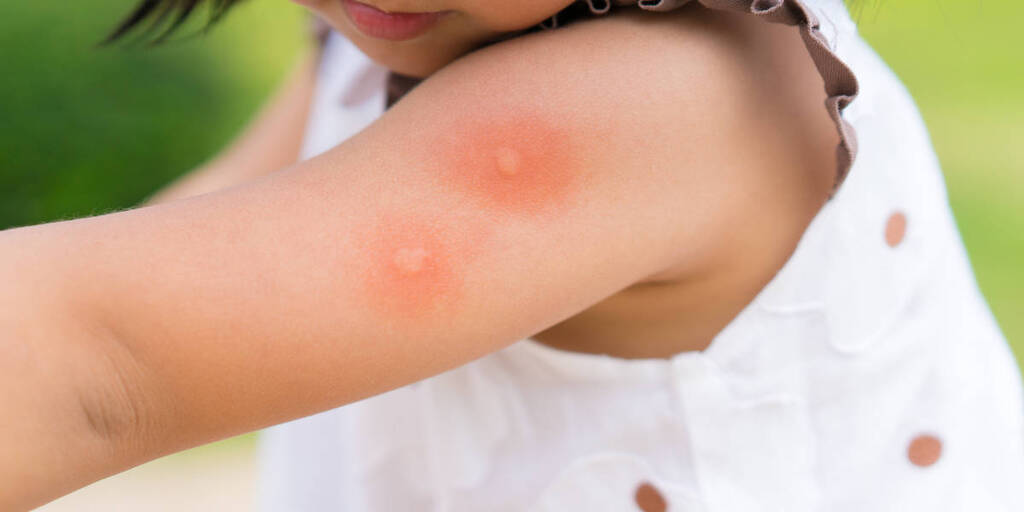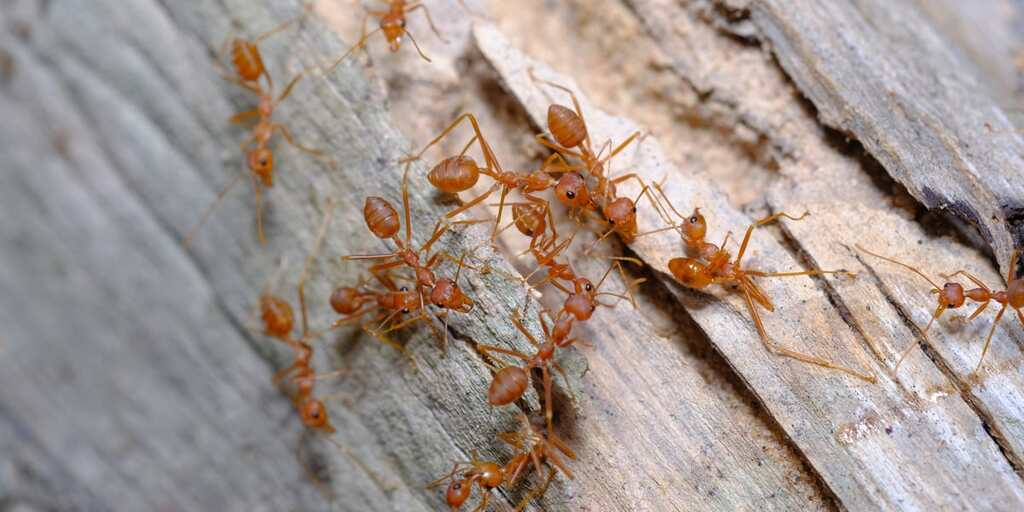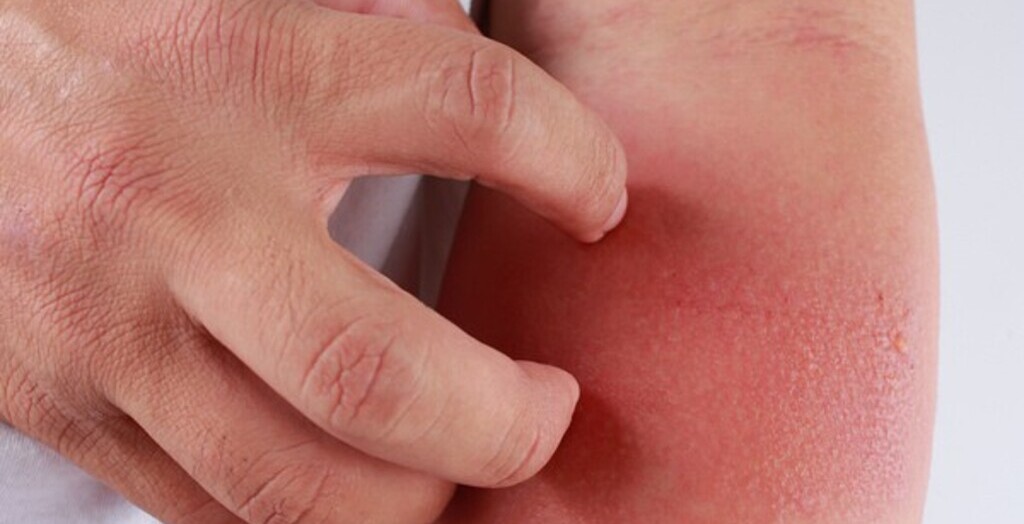Can you have an Allergic Reaction to Insect Bite?
One insect bite or sting is enough to worsen a bright day by spending time at the hospital’s emergency ward. At one point or another, almost every person has been bitten or stung by an insect.

Insect bites are red lumps or scratches caused by insects. This happens when insects inject anti-coagulant saliva so they can feed on your blood due to self-defense or when looking for food. Usually, bite and stings cause minor itching, swelling, and redness in the affected area. However, in severe cases, it can be painful and can trigger serious allergic reactions which turn into insect bite allergy.
As you go over this article, your mind will be enlightened by learning everything you must know about allergy to insect bites or stings.
What kinds of insects can trigger allergic reactions?
There are different kinds of insects that can cause an allergic reaction:
Stinging Insects
- Bees
- Wasps
- Hornets
- Yellow-jackets
- Fire Ants
These insects usually deposit a toxic substance (venom) into our skin through their mouth or stinger. For most people, once stung, they quickly recover over a short period of time. On the other hand, this could trigger a fatal allergic reaction.
Biting Insects
- Mosquitoes
- Fire Ants
- Fleas
- Certain flies
People who usually get bitten by these insects endure pain, itching, redness and minor swelling right where the bite(s) occurred.
Common insects found in the UAE
“According to Dr. Reza Khan, a specialist in wildlife and zoo management at Dubai Municipality, earth has almost 950,000 species of insects. He has warned the residents to be aware of several common insects that could have life-threatening bites or stings.”
-Golden Pest UAE, 13 February 2019
Now, let’s take a closer look at insects that are likely to stimulate allergic reactions. We will tackle the symptoms of various allergic reactions to specific insect bites and stings found in the UAE.
Mosquitoes and Skeeter’s Syndrome

Researchers say that some species of the mosquito have been thriving in the Emirates due to economic development, hence, urbanization, which leads to a higher number of breeding grounds particularly on stagnant pools of building sites where adult female mosquitoes find it convenient to lay their eggs.
Aside from the fact that these bloodsuckers carry diseases like malaria, dengue fever, Zika viruses, and West Nile, their tiny bites can cause big problems that could destroy your day.
Those with severe allergies suffer from symptoms like the red bump and itching are not even caused by the bite itself but due to the reaction of the body’s immune system to the proteins from the mosquito’s saliva that is known as the Skeeter’s Syndrome.
This is defined as “mosquito bite-induced large local inflammatory reactions accompanied by fever.” Symptoms include inflammation, swelling, heat, redness, and itching or pain.
Fire Ant

Ants can be a threat to human health that is for the reason that their presence can pose serious human health risks. They can be dangerous due to their bites and stings.
Fire ants, for instance, which now show infestation in Dubai, are aggressive when their nest is disturbed. They anchor themselves by biting to hold the skin and to sting repeatedly and in order for them to inject the toxic alkaloid venom called solenopsin.
Below includes signs of dangerous allergic reactions in relation to fire ant bites:
- breathlessness
- difficulty in swallowing
- nausea
- dizziness
- stomach cramps
- diarrhea
Why do insects bite?
No matter where you are: out camping in the mountains, swimming in the sea or pool, or even relaxing at the safety of your own home, insects you see or encounter have different defense mechanisms to protect themselves and their territories, like their hives or nests, when accidentally touched or disturbed.
Wasps, hornets, Yellow Jackets, all bees and fire ants are some of the insects that defend their territory. Aside from this fact, insects bite to feed off our skin (most particularly mosquitoes, lice, etc).
How do I know if I’ve had an allergic reaction to an insect bite or sting?
It is important to note that not all insect bites or stings stimulate allergic reactions. One must understand that there are differences between the symptoms of a normal reaction and an allergic reaction and that could bring peace of mind. Furthermore, an accurate diagnosis can help us manage the condition and be prepared for an emergency in case of unforeseen events.
Many people react to bites from insects; however, the reaction depends on the type of insect and an individual’s sensitivity. To one person this bite might just cause a small, itchy lump which resolves after a few days. While to another, it may be infected and could possibly spread more serious illnesses like Lyme, Encephalitis, and Malaria.
The venom injected into your body from the bite of an insect will cause your immune system to respond. Normally, your body’s immediate response includes redness and mild swelling at the site of the bite. But if you’re very sensitive to an insect’s venom, bites can cause a potentially fatal condition called anaphylactic shock. This can cause the throat to tighten and make breathing difficult.
Signs and Symptoms
- Local/Normal irritation. The type of insect associated with the reaction and the person’s sensitivity must be considered in identifying the severity of the bites and stings. The most common symptoms are the development of redness, pain, itching, and swelling which are evident at the site of an insect bite (sting) and they usually last for over a few hours or days.

- Toxic reactions. The injected harmful substance (venom) can cause a much more serious reaction which is life-threatening and is known as anaphylaxis. An allergic reaction occurs when the immune system is overwhelmed by an allergen. Like for insects that sting, the venom from the sting is the allergen. This can cause people to have breathing difficulties, dizziness, and a swollen face or mouth.

Here are some indications that you have a severe allergic reaction:
- an often blotchy rash can spread to other parts of the body
- breathing difficulties
- difficulty in swallowing
- chest pain
- stomach cramps
- diarrhea
- dizziness
- faintness or dizziness
- nausea
- rapid heartbeat
- severe swelling (e.g. of the tongue or lips)

Are you at risk of an insect bite allergy?
Check out if you are one of those who are prone to an insect bite allergy:
- Children
- Travelers
- Sensitive Skin
- Anaphylactic History
Children
We have all experienced being a child – just playing anywhere we wanted to. Children simply like to play wherever possible. They like to run around, be in narrow or (sometimes dark) places or lie on the grass. After which, it is sometimes noticeable they have insect bites which are typically from mosquitoes or some tiny insects from the ground. And because a child’s skin is very soft and a little more sensitive than an adult’s, one can become increasingly allergic to repeated bites.
Travelers
Whether you are a wanderlust or simply a wanderer who loves traveling around the world, one is likely to get bitten by an insect which usually, cannot be tolerated since the body is not used to being in a different environment like in certain parts of the world such as Asia, Africa, and South America. So it is better to always be ready and to keep a repellant with you when planning to go to a different country.
It is also advisable to check the destination’s specific health risks and recommendations.
Sensitive Skin
If you happen to have a sensitivity to insect bites or stings, your body may easily be triggered with allergic reactions. This happens because of your skin’s intolerance against a toxin that insects inject into the body which could lead to a serious allergic reaction.

Anaphylactic History
What is anaphylaxis? Anaphylaxis is a severe, whole-body allergic reaction to a chemical that has turned into an allergen. If you have this recurrent condition, you are likely to suffer from some signs and symptoms of an insect bite allergy, which can occur within minutes, or up to a few hours, once exposed to a provoking agent. A life-threatening allergic reaction produces signs and symptoms that require immediate attention.
Some symptoms include:
- Skin rashes, itching or hives
- Swelling of the lips, tongue or throat
- Shortness of breath, trouble breathing or wheezing (whistling sound during breathing)
- Dizziness and/or fainting
- Stomach pain, vomiting, bloating or diarrhea

Medical Treatment
People normally rely on medications to temporarily alleviate any symptoms relating to insect bites or stings. In the meantime, medications below could help:
- epinephrine (subcutaneous)
- diphenhydramine (Benadryl)
- steroids (drugs in the cortisone family) are also usually given as IV
- oral antibiotics may be given for infected bite wounds.
- an over-the-counter antihistamine such as diphenhydramine (Benadryl) cream or pill
- calamine lotion to relieve itching
In extreme cases, an IV is started, oxygen is given, and a heart monitor is used until the symptoms have improved with medications.
For those bites and stings that lead to the transmission of pathogenic organisms, it is advised to see a health care professional to obtain a definitive diagnosis so appropriate treatment(s) may be taken place.
Is there a treatment that I can do for my child or for myself at home?
Definitely. There are ways to avoid worsening the reaction that is evident in the affected area. Treatment depends on the type of reaction to the bite or the severity of the symptoms and your general health.
The majority of bites can be treated at home, especially if your reaction is mild. If there is only redness and pain at the site of the bite home remedy is applicable.
The following are simple treatments you can do at home:
- clean the affected area with soap and water.

- if possible, carefully use a pair of tweezers to remove the stinger left making sure it does not get squeezed to avoid forcing the substance into the body.
- an affected area is typically itchy, so applying a topical steroid cream will ease the itching.
- to reduce swelling, elevate the affected area like the arm or leg. Applying ice (in a sealed bag or wrapped in a clean cloth) or a cold compress over the area is also helpful.
Common ways to avoid an allergic reaction to insect bites
- Completely avoiding all insects;

To avoid all insects is to live in a 100% sealed sterilized house and to refuse to venture outdoors, although this is clearly impossible as we are normally surrounded by all types of insects. Alternatively, you can keep your doors and windows closed, or you can put up a screen or thin netting to prevent insects from getting inside the house.
- Limiting outdoor activities;
Insects basically control your outdoor life. It is possible for adults to regulate their outdoor activities as they are more disciplined. However, this is very challenging for a child, who just wants to maximize and enjoy their playtime outdoors.
You may just ensure that your child is not playing or wandering around plants, rubbish, compost or stagnant water.
- Wearing protective clothing like long-sleeved shirts, pants, hats, and socks especially around ankles, wrists, and neck, and always wear shoes when outdoors.

This is not practical for day to day activities in hot and or muggy areas, where people normally try to wear minimal clothing.
- Wearing insect repellant
Use an insect repellent on exposed skin if you or your child needs to be outdoors. But avoid applying the repellent on your child’s hands, areas around the eyes, or to cuts and irritated skin. Choose 100 % natural and organic insect repellant.
Holistic Allergy Elimination
Insect bites and stings often cause prominent discomfort and can even cause fatal anaphylaxis in extreme cases. It is important to recognize its early symptoms and be well-prepared in order to keep one’s health safe and sound.
Although the availability of over-the-counter and prescribed medications helps resolve the problem with insect bite (sting) allergies, they don’t really correct the unusual sensitivity one feels when suffering from an allergy.
With NAET, treatment is non-invasive, drug-free, and natural to alleviate all types of allergies with various severities. Moreover, it is long-term and guaranteed safe. This technique both identifies and treats allergies and sensitivities that are creating blockages in your energy system.
NAET treatments eliminate allergies, making the avoidance of allergens no longer necessary. It completely desensitizes the body to the allergen so that it is no longer identified as a threat. After a successful treatment, which may sometimes take several treatments for a particular allergen, the body will no longer be negatively reacting to that offending item and will also be tolerating the substance without an allergic reaction.
Anybody can be treated with NAET ― from newborn babies up to the elderly. In the book “Say Good-Bye to Illness”, Dr. Nambudripad gives several examples of successfully eliminating insect bite allergies through NAET.
In Conclusion
Prevention is the best medicine, so knowing how to avoid insect bite allergy is the best way to stay safe. But for a long term allergy-free life, our holistic allergy treatment prevents the allergic reaction to bites, thus contact avoidance to insects is no longer needed. It will take time, but surely worth the wait. Worry no more and be OPTIMISTIC!
Connect with us through our Facebook page at www.facebook.com/NAETDubai or visit: www.naetdubai.com. You will find a wealth of information here along with an opportunity to speak confidentially through WhatsApp 056-639 0197 or Phone Call 04-420 1633.
You may also email us at admin@naetdubai.com



